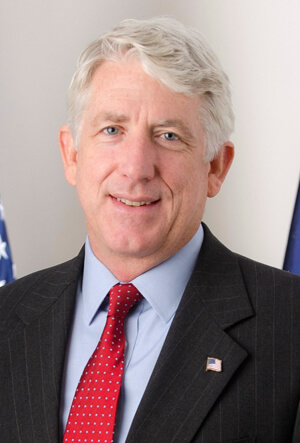Lawmakers are having second thoughts about SESTA/ FOSTA.
Several Democrats — including Massachusetts Senator Elizabeth Warren — teamed up on International Day to End Violence Against Sex Workers to unveil legislation aimed at studying the impacts of the controversial law that was intended to curb sex trafficking but has been slammed for doing just the opposite.
SESTA/ FOSTA, which passed last year with strong bipartisan support, creates exceptions in Section 230 of the 1996 Communications Decency Act that had kept providers of computer services from being held responsible for what users do on their platforms. Many websites that had accepted sex worker listings abandoned ship out of fear of being punished under that new law.
But the SAFE SEX Workers Study Act, introduced on December 17, would examine how SESTA/ FOSTA has impacted online access for sex workers in response to widespread criticism that it has forced them off the web and into dangerous situations that leave them vulnerable to attacks. Sex workers have in recent decades utilized online resources to vet potential clients, but now many say FOSTA/ SESTA crackdowns have both wiped out their safety nets and cut off their sources of economic stability.
Congressmembers Barbara Lee and Ro Khanna of California introduced the bill in the House of Representatives and Warren was joined by Senator Ron Wyden of Oregon as lead sponsors in the upper chamber. House co-sponsors are Congressmembers André Carson of Indiana, Judy Chu of California, Eleanor Holmes Norton of Washington, DC, Pramila Jayapal of Washington, Alexandria Ocasio-Cortez of New York, Jan Schakowsky of Illinois, Rashida Tlaib of Michigan, and Bonnie Watson Coleman of New Jersey. Senator Bernie Sanders of Vermont is the only co-sponsor in the upper house. All are Democrats.
Numerous LGBTQ and HIV advocacy groups are supporting the bill, including Lambda Legal, the National Center for Transgender Equality, the National Center for Lesbian Rights, the Human Rights Campaign, Red Canary Song, and the Center for HIV Law and Policy.
The legislation acknowledges that SESTA/ FOSTA caused websites to shut down due to fear that the law would penalize those known to serve as hubs for sex workers, and it also points to the realities that “widespread discrimination against populations, including LGBTQI+ individuals, particularly transgender women of color, prevents many from accessing formal employment resources and educational opportunities.”
“There has been a host of anecdotal reporting from sex workers and community health organizations that, following the enactment of SESTA/ FOSTA, sex workers have faced greater threats of physical and sexual violence, as they are increasingly pushed off on-line platforms and onto the streets to seek clients,” Khanna said in a written statement. “Despite these reports, no national study has been conducted to assess the impacts of SESTA/ FOSTA on sex workers.”
Warren also chimed in, saying that lawmakers are responsible for reviewing “unintended consequences of all legislation,” including FOSTA/ SESTA.
The bill would require the review to be handled by the secretary of Health and Human Services in consultation with the director of the Centers for Disease Control and Prevention, the director of the National Institutes of Health, and the assistant secretary of Health and Human Services for Mental Health and Substance Use.
The bill would also require the study to include interviews with and surveys carried out by non-profits and community-based organizations that provide services to sex workers. The study would review a number of ways that FOSTA/ SESTA affected sex workers, including the bill’s impact on vulnerability to transmission of HIV and disparities in those effects on populations including LGBTQ people, racial and ethnic minorities, undocumented folks, and people living in rural areas.
Should it pass, the bill would require the HHS secretary to report on the study’s results within one year of its enactment.
Puneet Cheema, a staff attorney for Lambda Legal, described the bill as a step forward toward unraveling the effects of FOSTA/ SESTA
“It is essential that we understand how to craft solutions that would mitigate the vulnerability to violence experienced by people who trade sex,” Cheema said in a written statement.
The bill’s fate is unclear, but it has no Republican co-sponsors and is likely to face significant resistance among conservatives should it pass the House and advance to the Senate.
































